Acknowledgments
For more than ten years of my life, I have been lucky to work with many amazing people to develop, create, and publish this project. I was fortunate to gain critical funding for this multisite research effort from a variety of programs and institutions, including the UC Pacific Rim Research Program, the UCLA Institute of American Cultures/Asian American Studies Center, the UCLA Center for Southeast Asian Studies, UCLA Affiliates (especially Roz Livingston), the UCLA History Department, and the University of Wyoming Office of Research and Development.
From my multiple research trips across the globe in the past decade, I must thank the following archivists and scholars for their unending support and assistance: in Hawaii, Joan Hori, Dore Minatodani, and the entire staff at the Hawaiian/Pacific Collection at the Hamilton Library at the University of Hawaii at Mnoa; Marilyn Reppun, Vivian Guiterrez, John Barker, and other staff at the Mission Houses Museum; Gina Vergara Bautista, Patricia Lai, and others at the Hawaii State Archives; Roderick Labrador, Jonathan Okamura, Tia Reber, and Dean Saranillio for providing vital connections and assistance in the islands throughout my work on this project.
In Puerto Rico, I must thank Amlcar Tirado, Pedro J. Rivera Guzmn, and the Instituto de Estudios del Caribe; Maria Dolores Luque and her staff at the Centro de Investigaciones Histricas; and the staff at the Coleccin Puertorriquea at la Biblioteca, all at la Universidad de Puerto Rico Ro Piedras. I must also thank Juan Carlos and other archive staff members at the Archivo General de Puerto Rico, as well as Rudy and Sonia Mendez in San Juan. None of these contacts would have been made without the support of Csar Ayala.
In the Philippines, I am grateful for the assistance of Yolanda E. Jacinto, Prudenciana C. Cruz, and the entire staff of the Filipiniana division at the National Library of the Philippines, as well as Waldette Cueto and her assistant Bhal at the American Historical Collection at Ateneo de Manila University. In the United States, Joseph D. Schwarz at the National Archives at College Park and the staff at the National Archives Pacific Branch in San Bruno, California, were invaluable.
I also encountered many generous and welcoming individuals throughout my research experience in the Hawaiian Islands. I thank each person who took the time to talk-story with me about his or her experiences at Hawaii sugar plantations. I am especially grateful for the hospitality of and extra effort made by Dr. Fred Soriano and Gus and Marion Villanueva on the island of Hawaii. Eleanor Morita, Jiro Sumada, and Junko Nowaki also went out of their way to help me contact folks on the island.
I also need to recognize the two major scholars of Puerto Ricans in Hawaii. Norma Carr not only shared her fabulous oral history collection with me, but she graciously invited me to stay at her home many times. Blase Camacho Souza and her daughter Michelle were also very supportive of my work. Nlida Perez and Kimberlly Irizarry graciously allowed me to take an early look at Blases collection of materials at the Archives of the Puerto Rican Diaspora before it was fully cataloged at the Centro de Estudios Puertorriqueos at Hunter College. Pedro Hernandez spearheaded image acquisition for me.
At the University of Wyoming, I truly want to thank Ronald Schultz, Michael Brose, Phil Roberts, Kelly Visnak, Keith Wresinkski, Bill Gern, Andy Hansen, Jeffrey Means, Douglas Johnson, and Leif Cawley for their advice and support through the last stages of publication. I am also forever grateful for the support and encouragement of Phil Christman, Faye Caronan, Nicole Choi, Emily Hind, Jennifer Ho, Jennifer Hayashida, Isadora Helfgott, Lucy Mae San Pablo Burns, Robin Derby, Ashley Lucas, Rongsong Liu, Laura Halperin, Gladys Nubla, Carolina San Juan, Lilia Soto, Mary Talusan, and Judy Wu. Last, but not least, Henry Yu has been a great advisor and colleague.
At University of Illinois Press, I am so grateful for the enthusiastic and tireless work and support of Martin Manalansan, Vijay Shah, Laurie Matheson, Dawn Durante, Tad Ringo, Julie Gay, and the rest of the editors and staff. I am grateful to have found an amazing publishing home. Finally, many thanks to my family and friends who endured the ups and downs of my academic pursuits. Your personal support and love have gotten me through many challenges, and I hope this work can inspire others to keep pursuing their own ambitions.
ISLANDERS IN THE EMPIRE
Introduction:
Defining U.S. Colonial Experiences
THE LONG HISTORY OF U.S. EXPANSIONISM
In 1901, Puerto Rican Alberto E. Minvielle played overlapping and contradictory roles as a hospital assistant, interpreter, and general helper for the Olaa plantation on the east side of the island of Hawaii while also unofficially leading Puerto Rican laborers at this location and contributing articles to the Puerto Ricobased Spanish-language newspaper La Correspondencia. Two decades later, during the 192425 labor strike in the Hawaiian Islands, Flaviano M. Santa Ana spoke on behalf of Filipino laborers at the same plantation while simultaneously working as a member of the plantation special police, tasked with maintaining order during strike times. His conflicting responsibilities as labor spokesperson and plantation security became further complicated by his position as a Protestant minister. How did these two individuals come to fill these multiple roles?
The larger political-legal context of their regions of origin directly influenced both mens careers. The complexity of their social roles was intimately tied to the liminal status that both Puerto Rican and Filipino laborers in Hawaii held as a result of the ambiguous politics of U.S. imperialism in all three regions. The United States had gained possession over the two former Spanish colonies, as well as Guam, after the War of 1898 and the subsequent Treaty of Paris. In 1904, the Supreme Court ruled that the people who resided in these former Spanish territories were not aliens of the United States but citizens of their respective regions under U.S. control. The justices, however, refused to



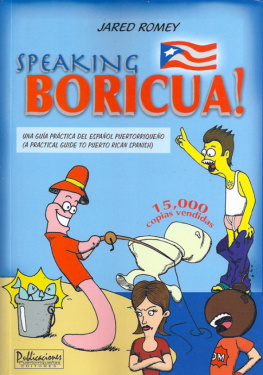
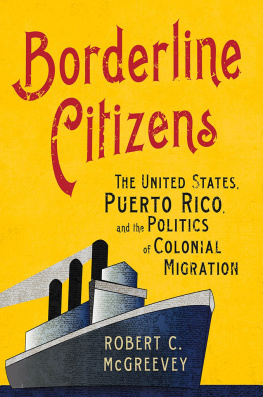
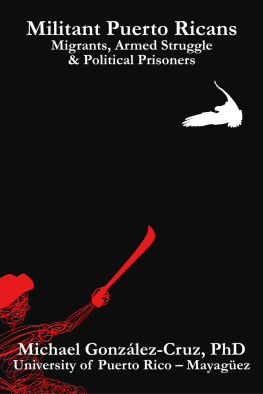

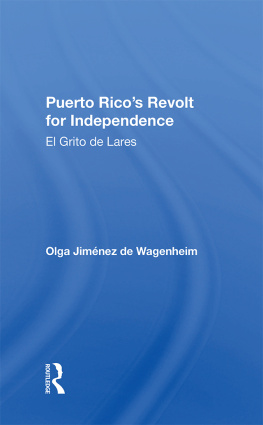
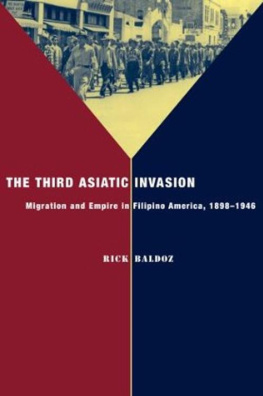
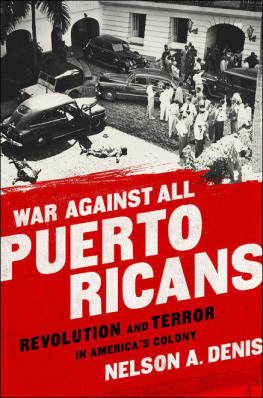

 This book is printed on acid-free paper.
This book is printed on acid-free paper.